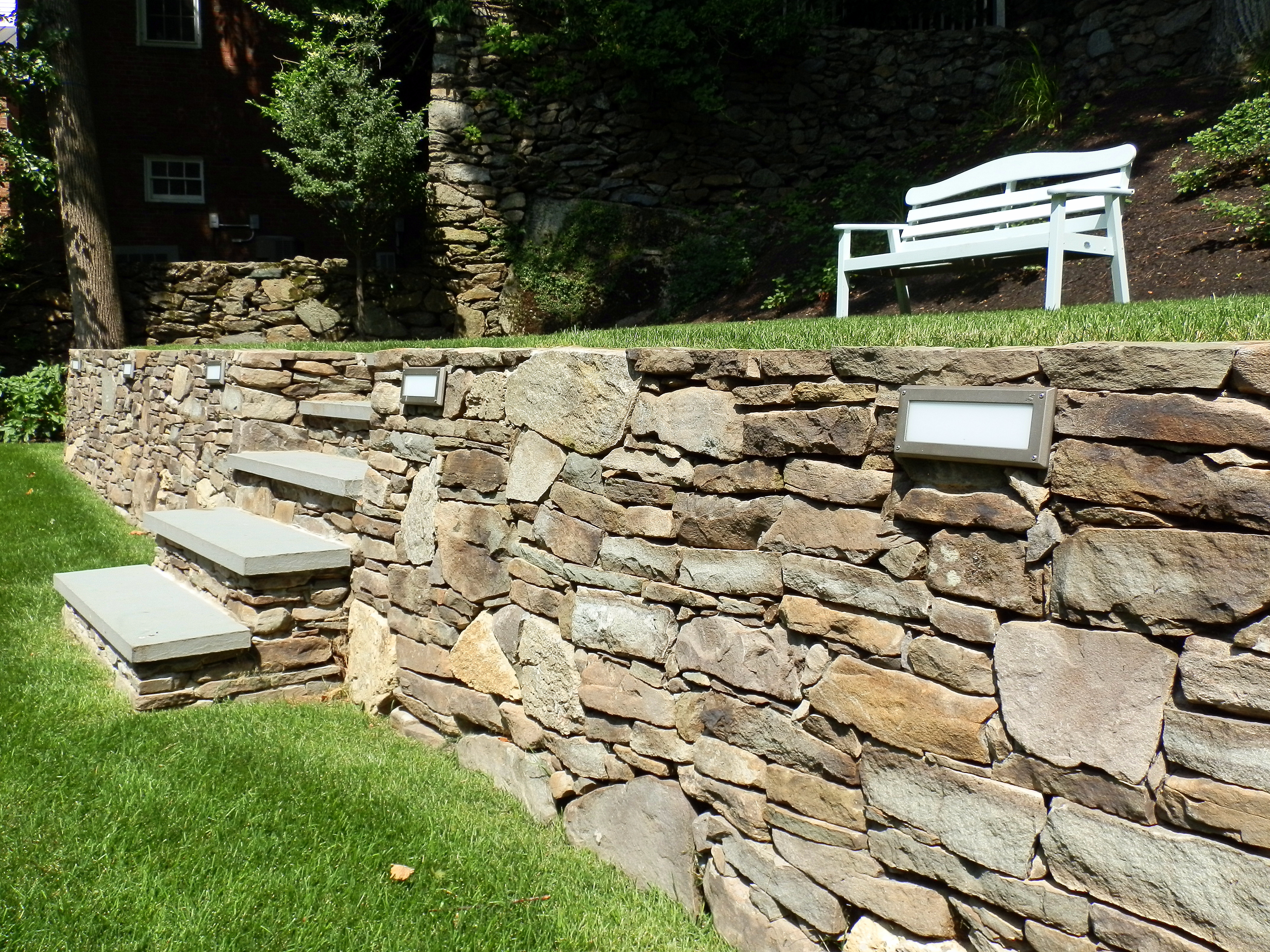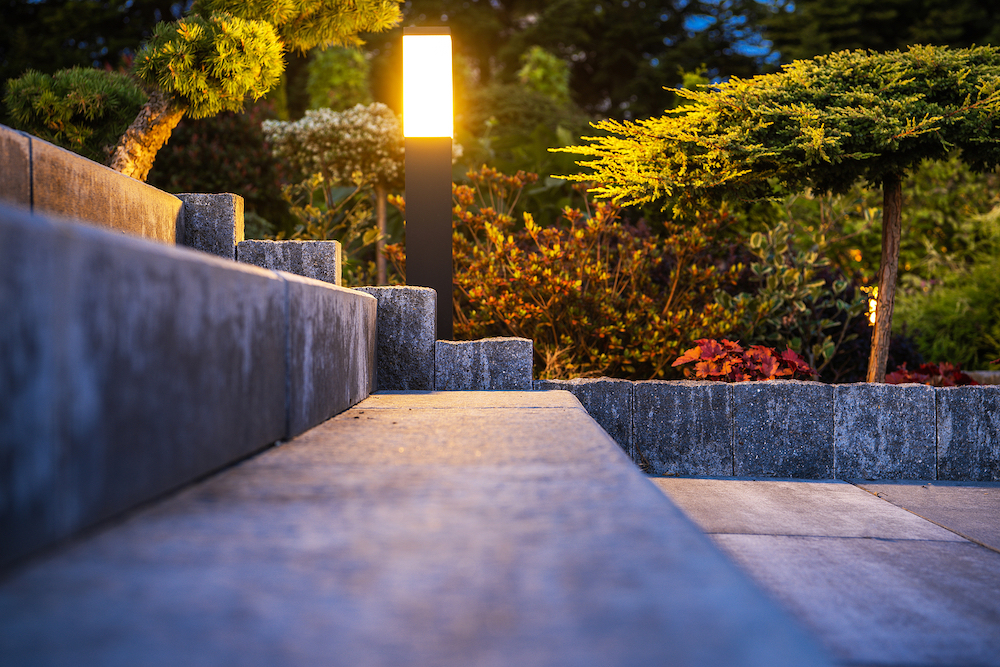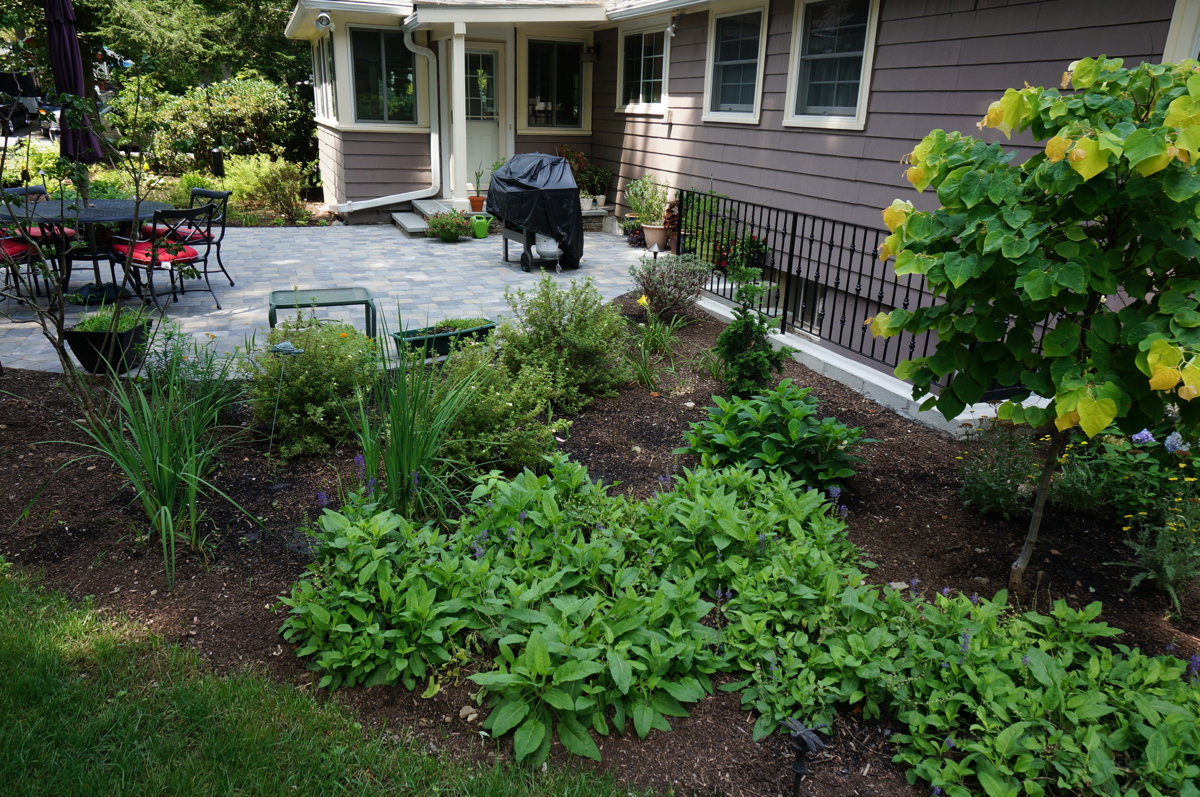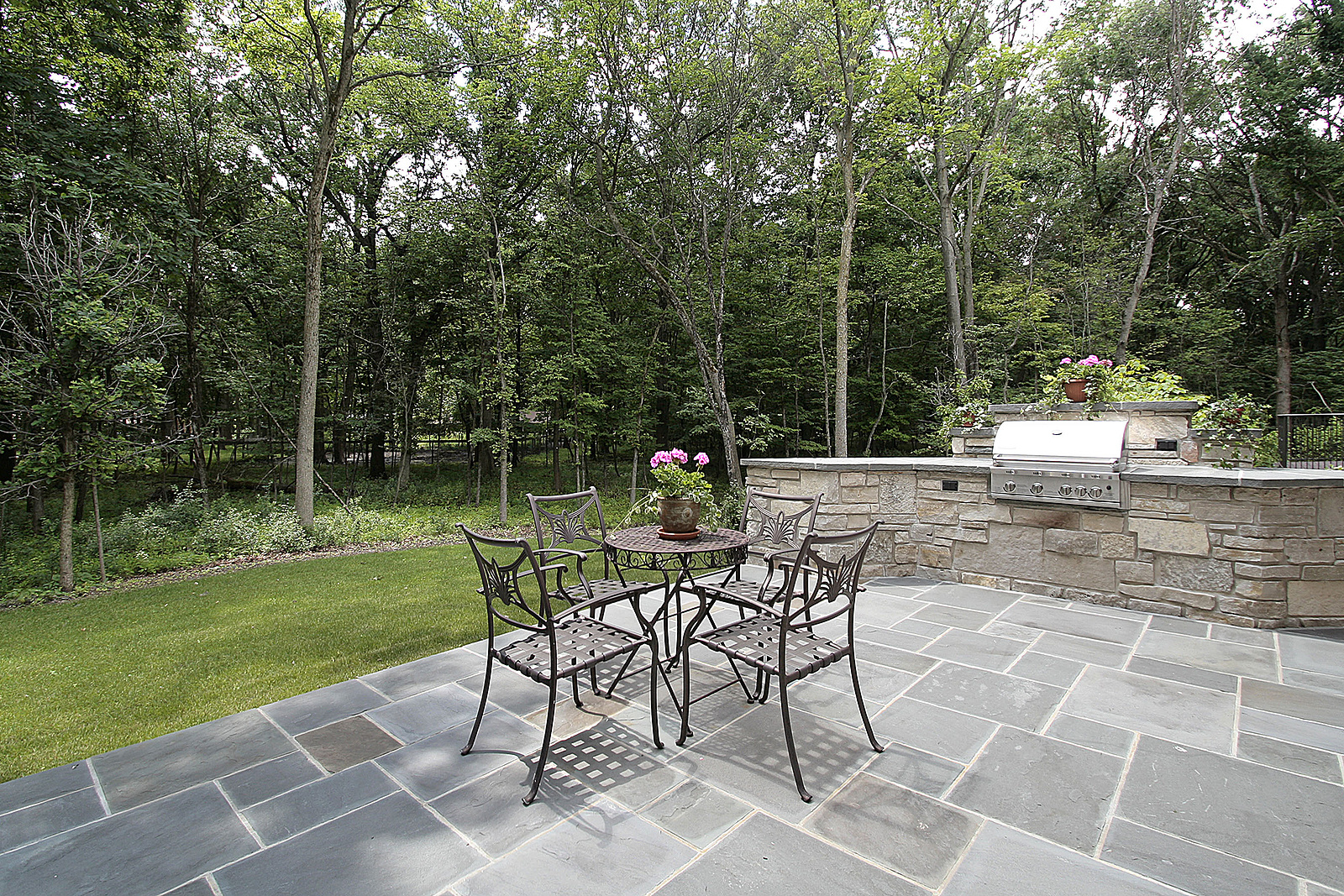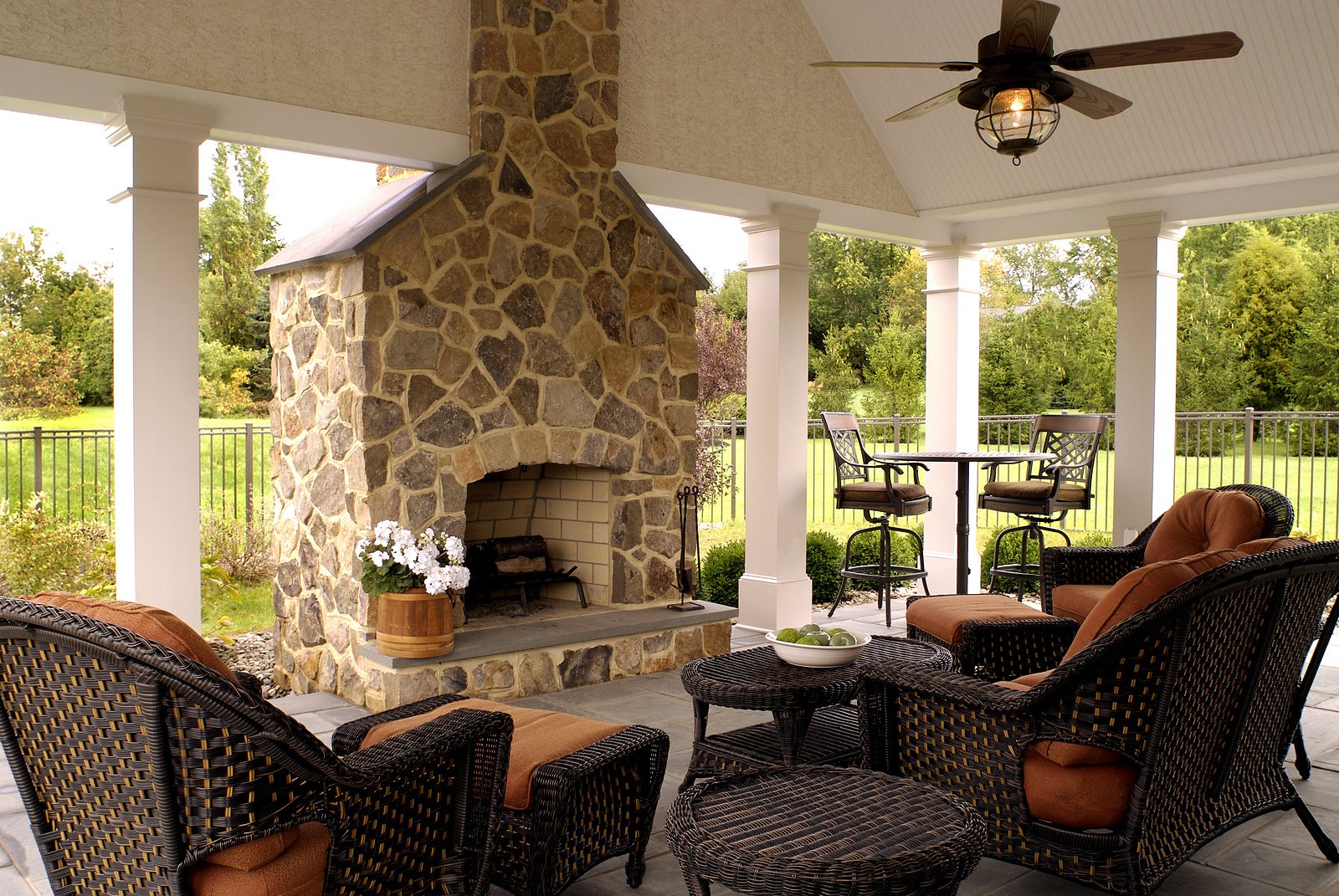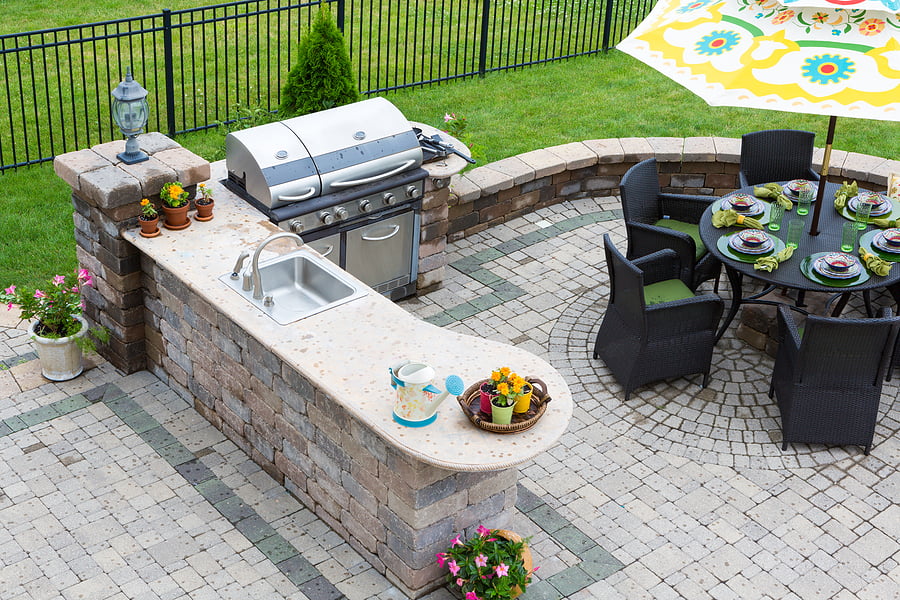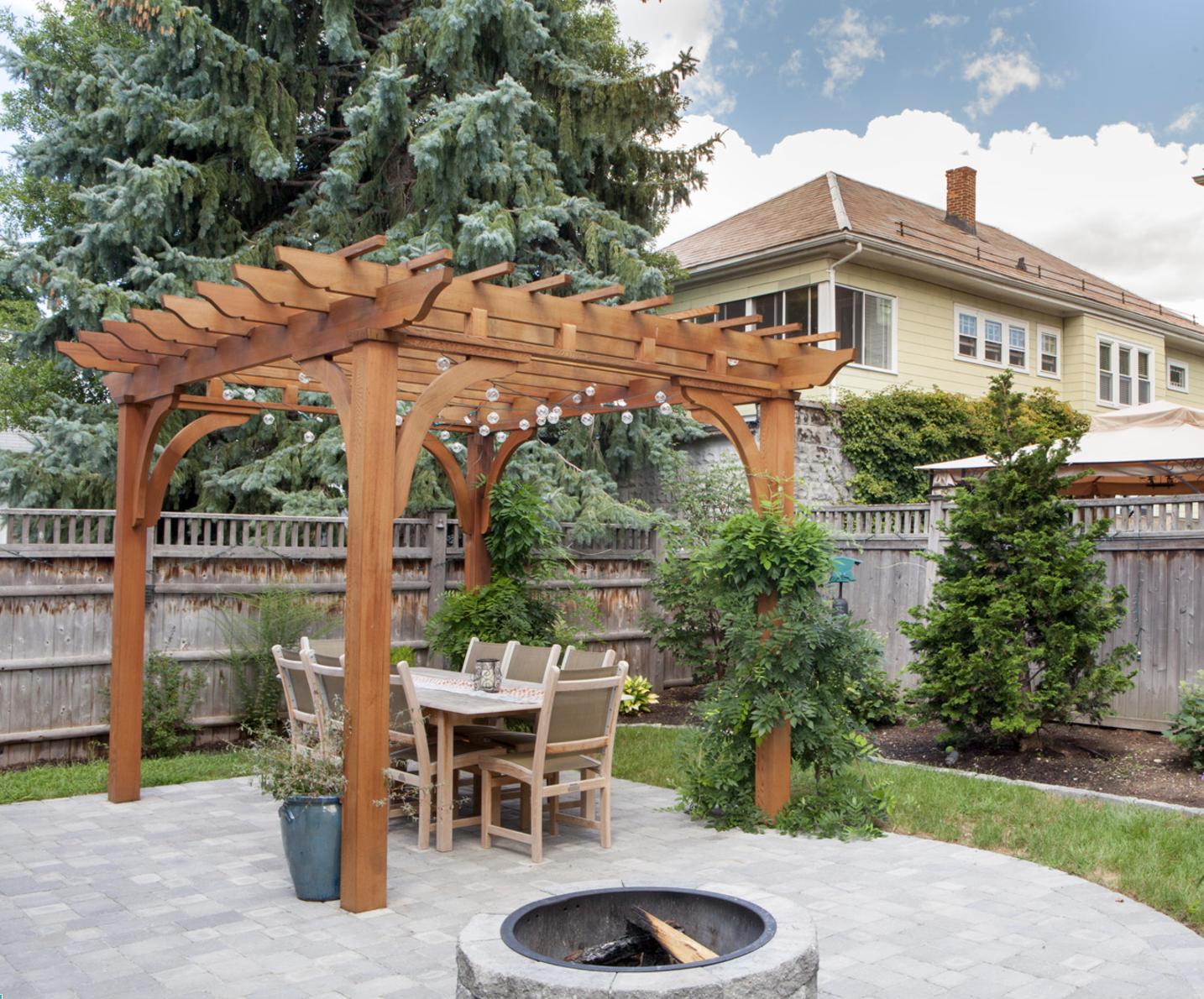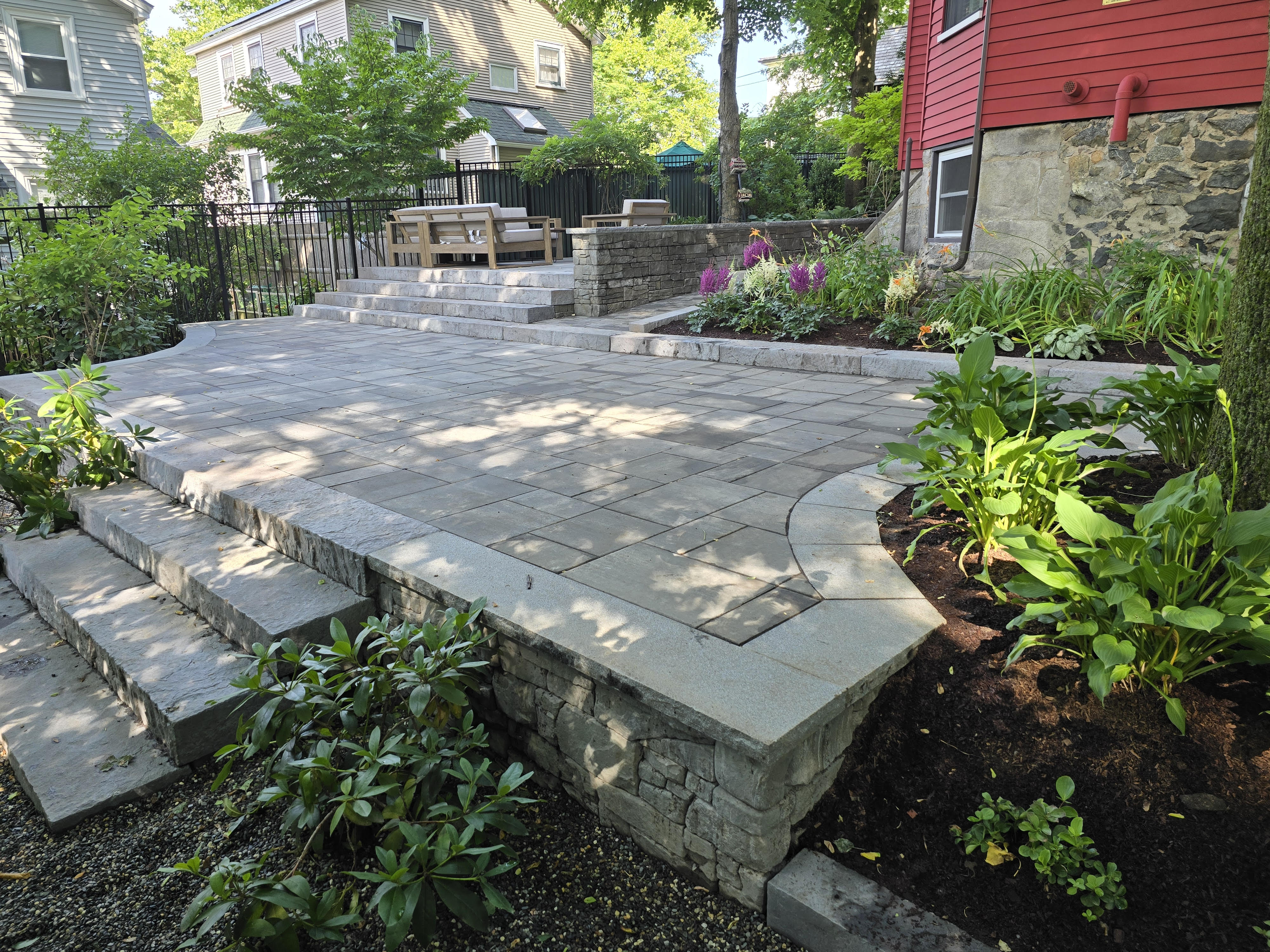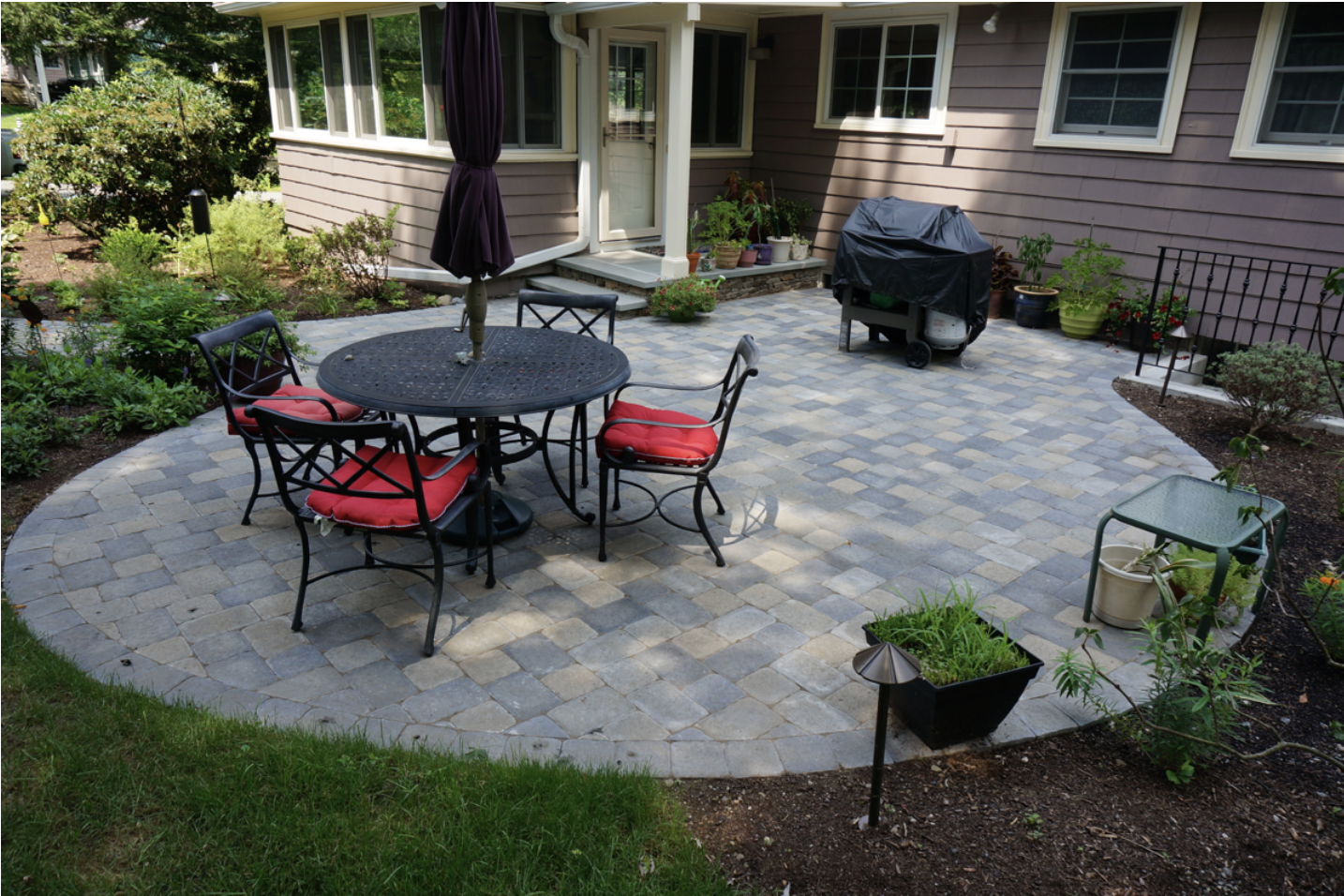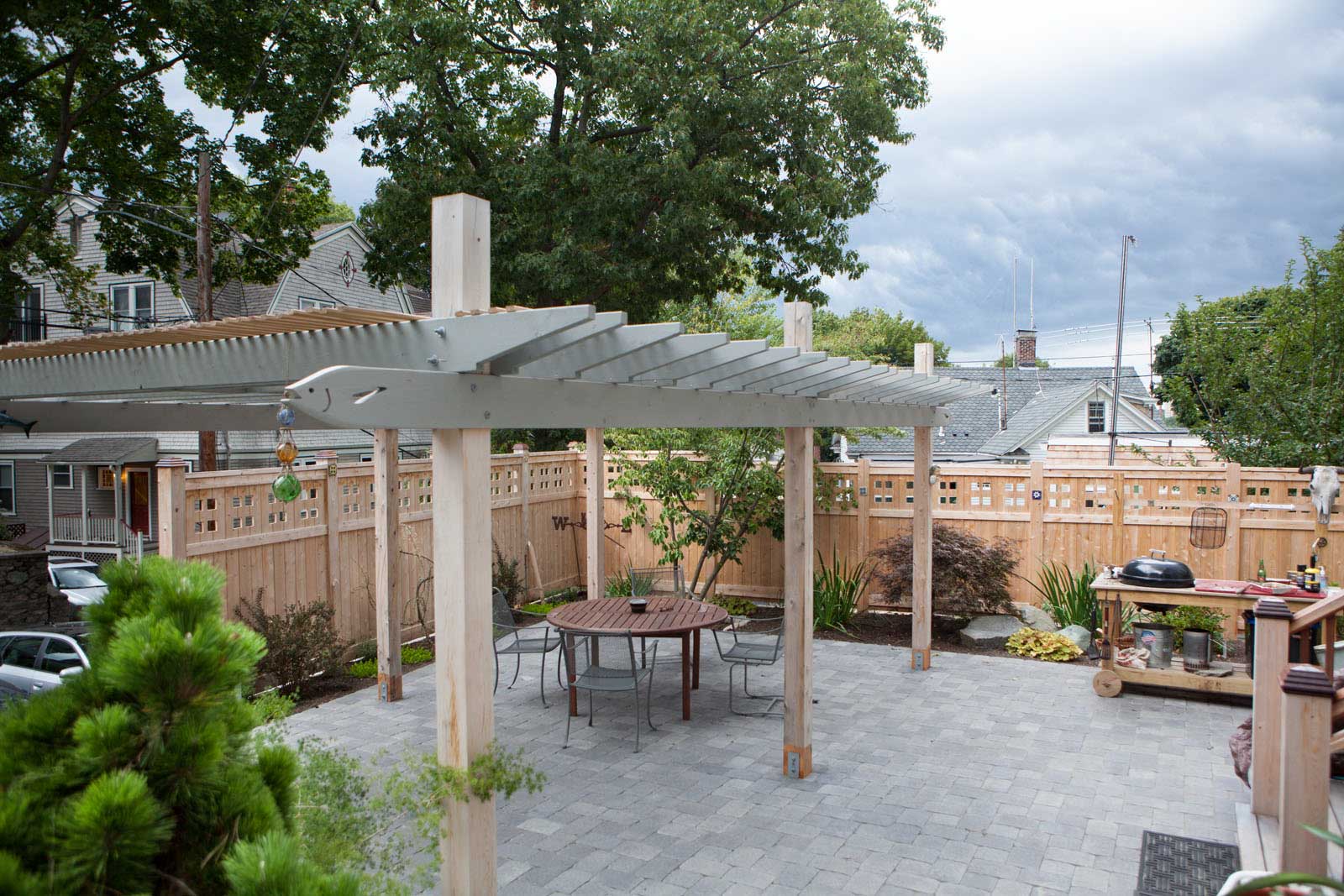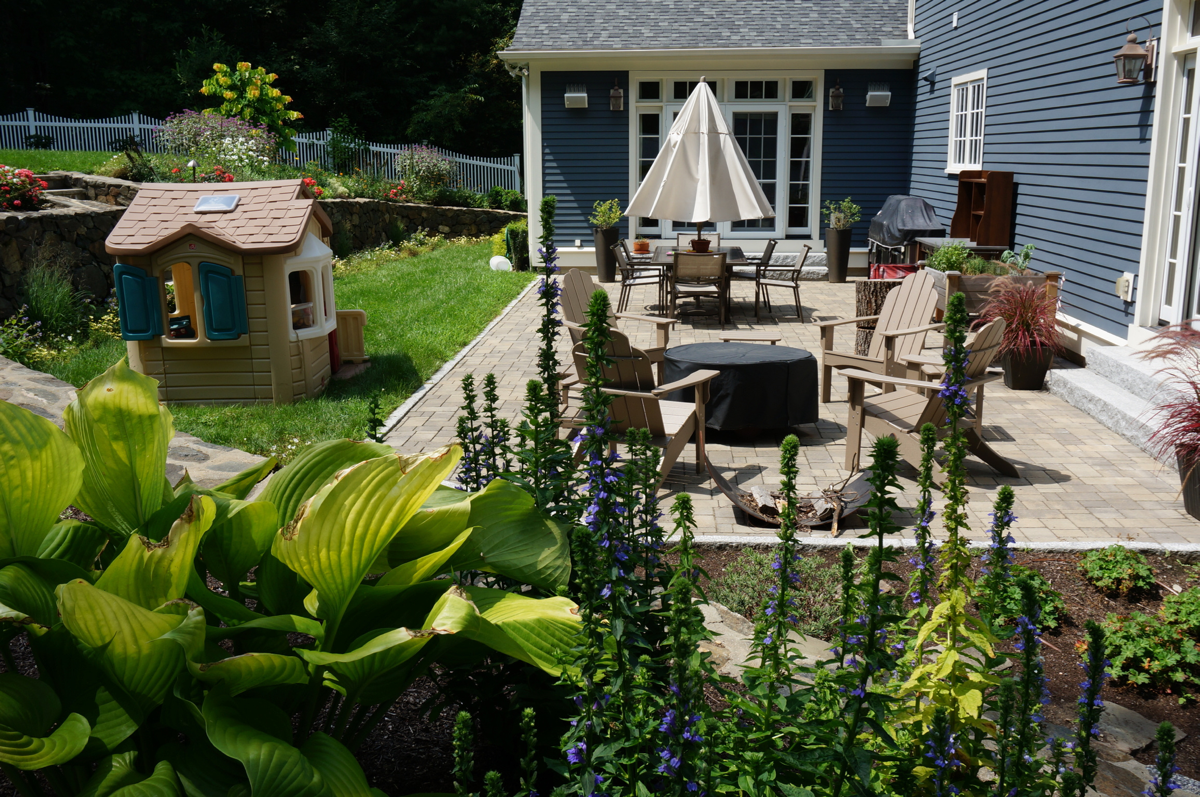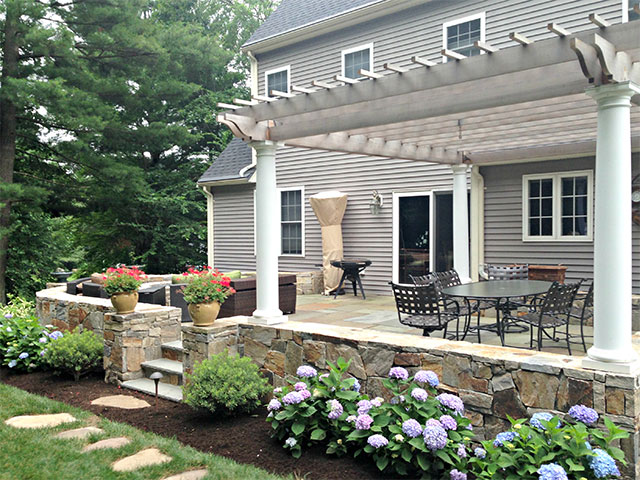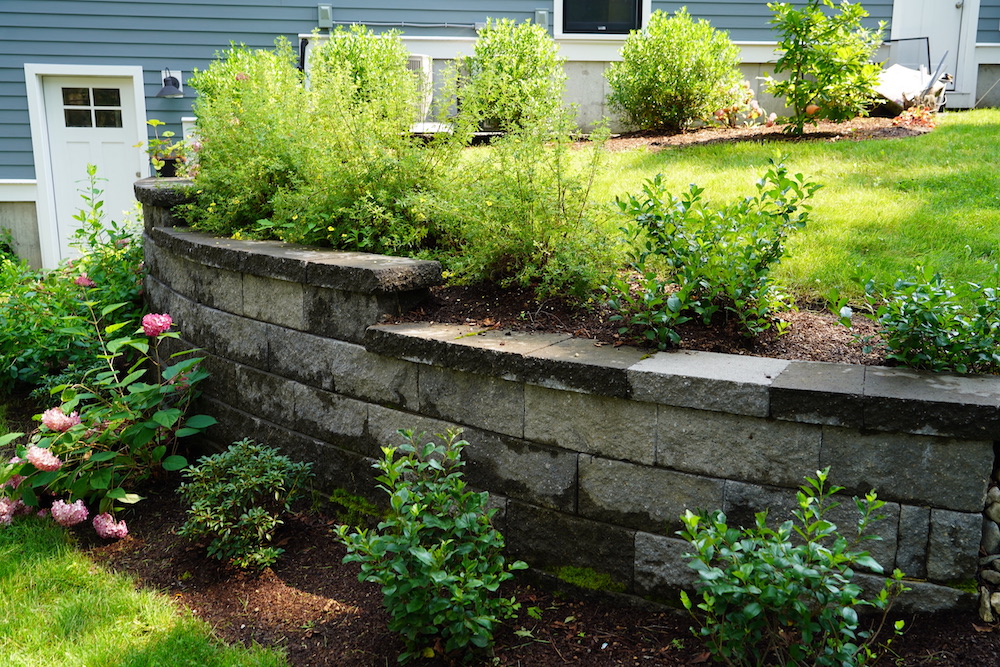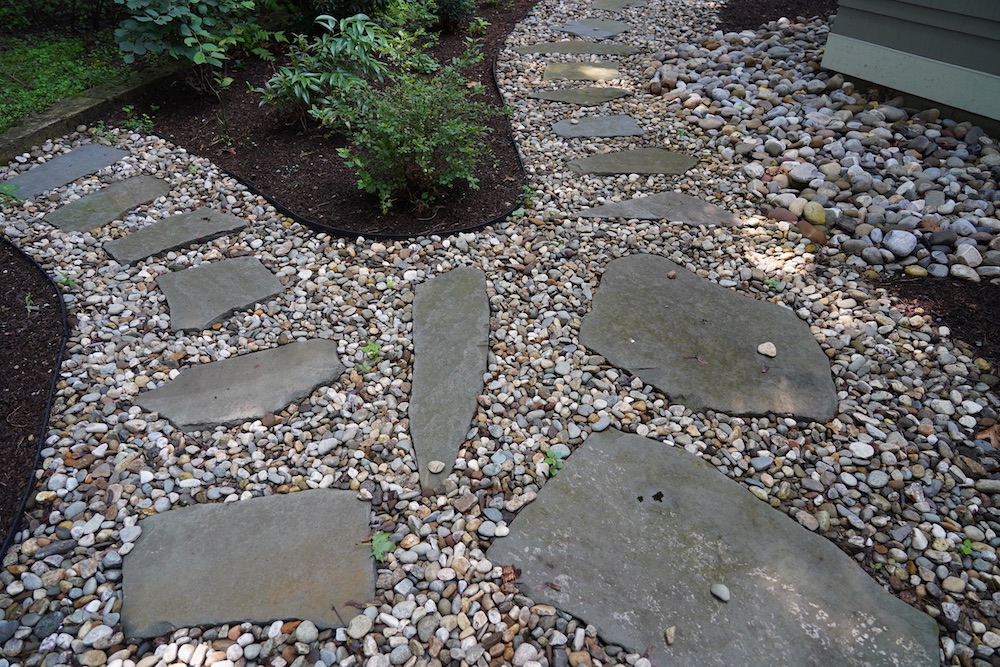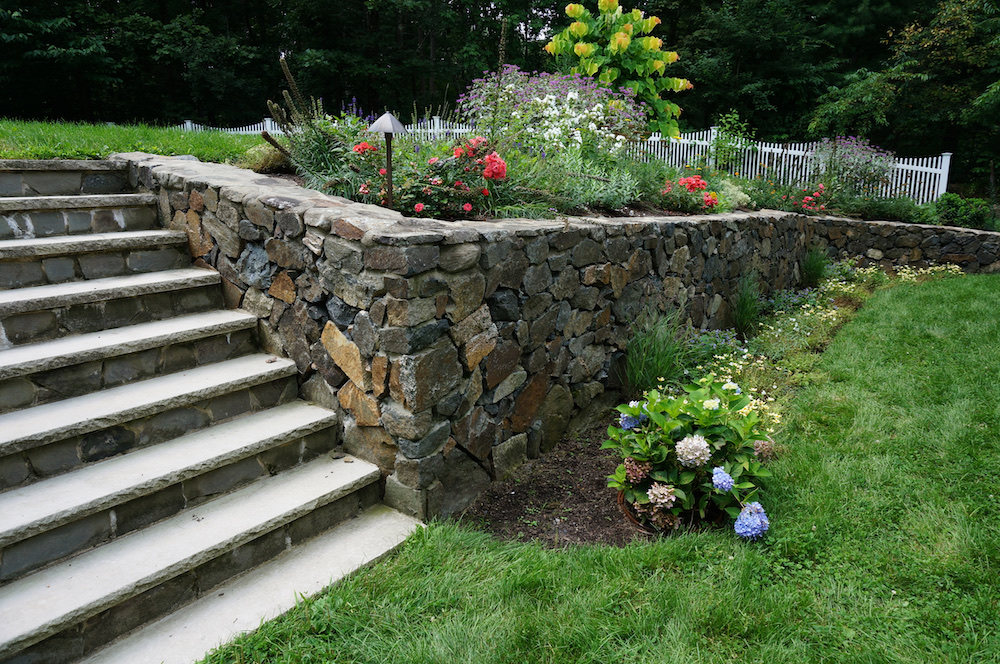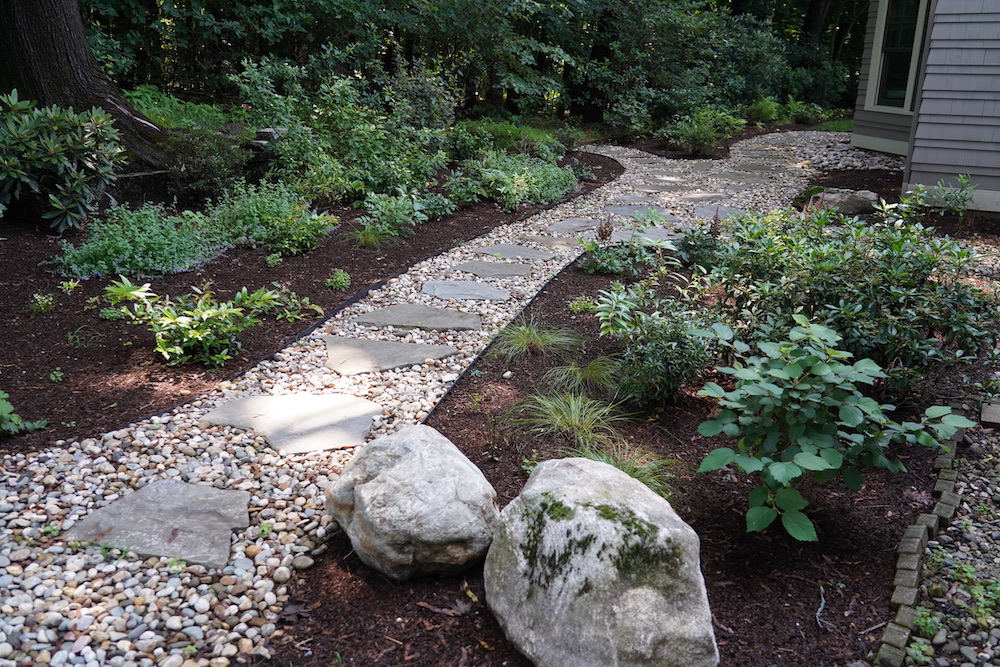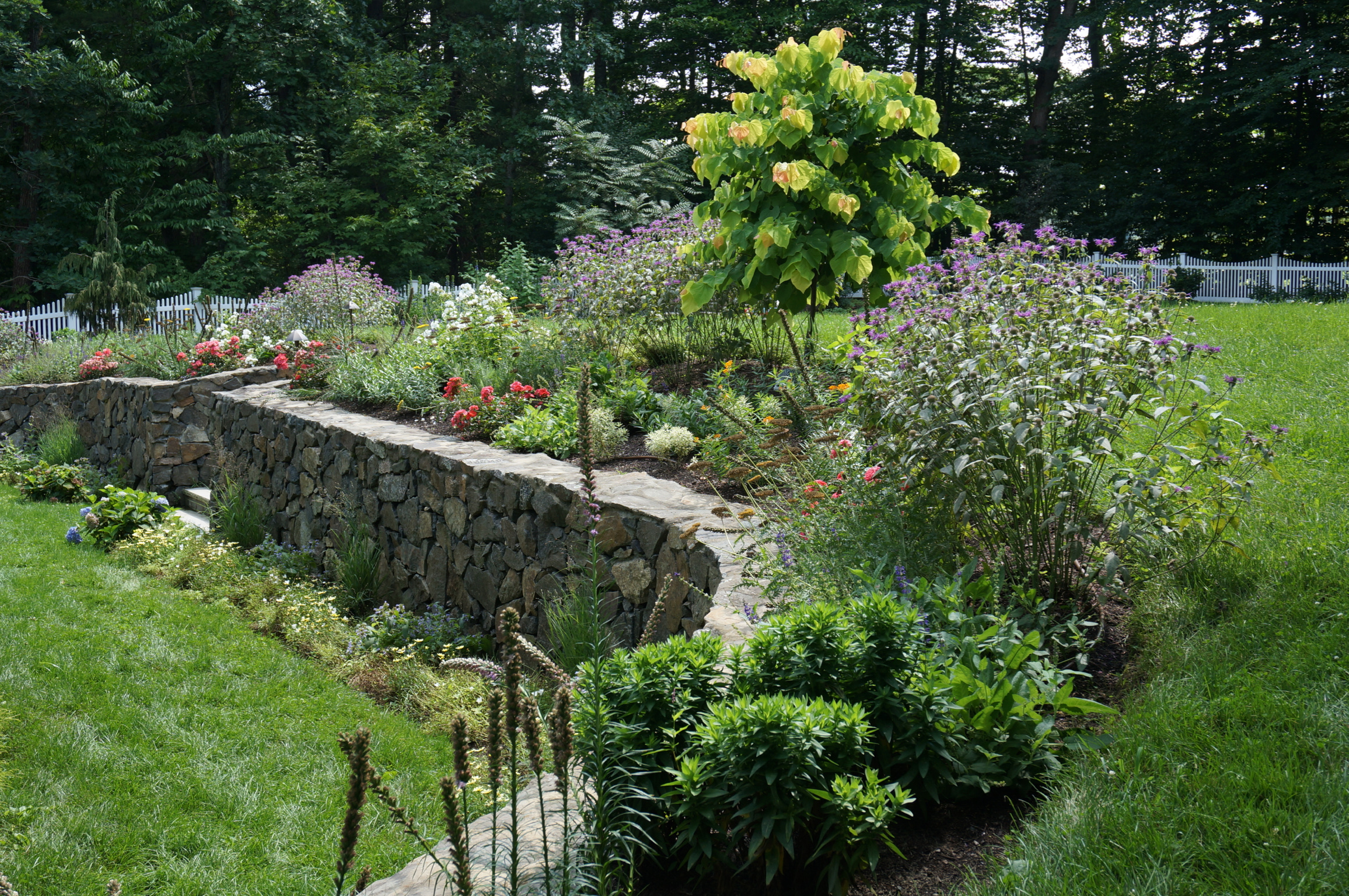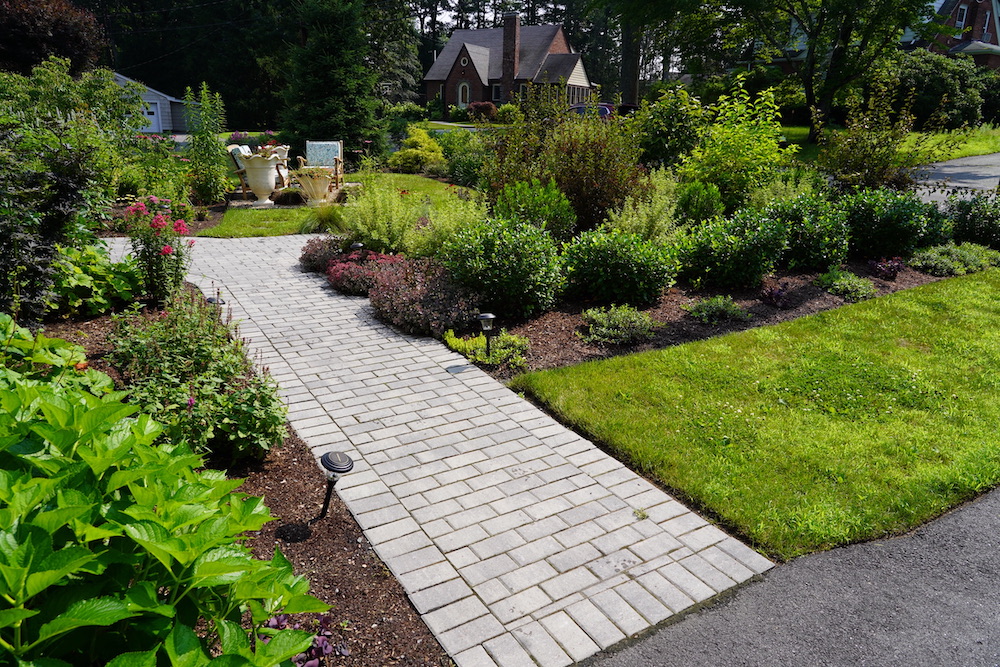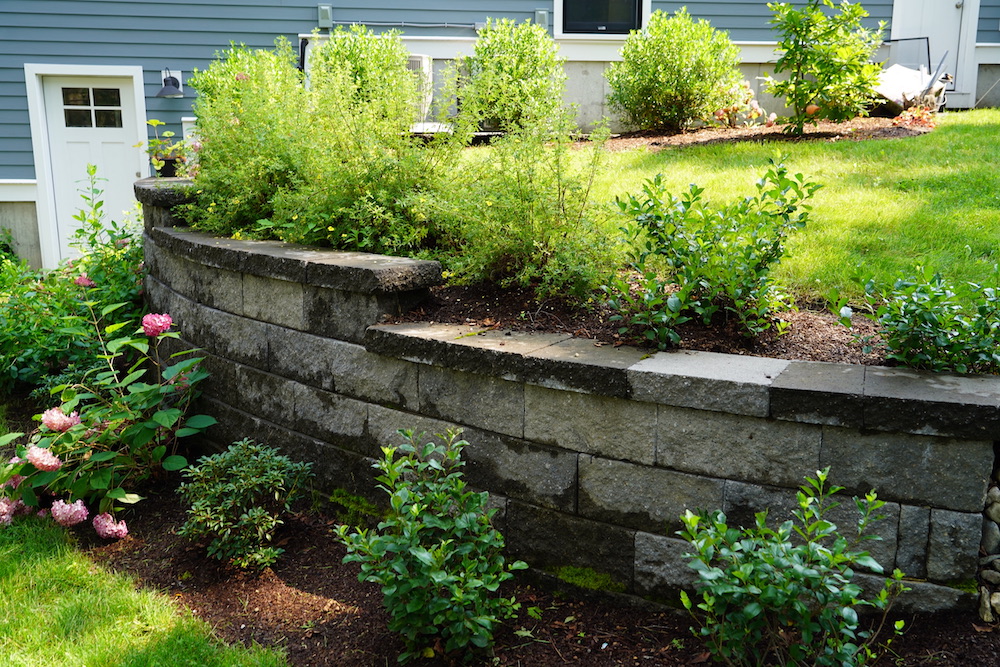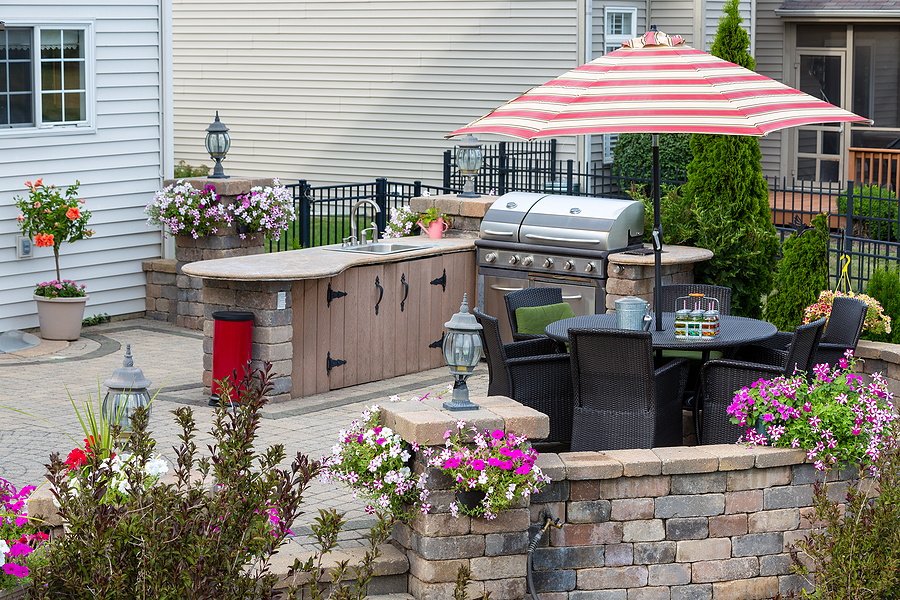When you’re building a new hardscape, there undoubtedly will be many different factors you’ll be considering as you choose your materials — style, budget and availability are sure to be among them.
However, there’s another consideration unique to homeowners in cold climates like Massachusetts: The ability for the materials to withstand the impact of the freeze-thaw cycle.
If you’ve lived in the area for any length of time, it’s a pattern you know well. The first signs of spring emerging can quickly plummet to freezing temperatures, only to rise again shortly after.

These rapid fluctuations can create extra pressure on hardscape materials, causing them to crack, shift or even break apart. Even more challenging, these problems aren’t always immediately evident, as the water can seep into tiny cracks on the hardscape’s surface.
For this reason, the durability of hardscape materials is just as essential as their aesthetics to your hardscape design. The right types of hardscape materials should not only withstand the elements, but also add long-term value and beauty to your home as part of your overall landscape design.
The Best Hardscape Materials for Cold Climates
Granite
Granite is a New England classic, and for good reason. This low-maintenance natural stone is one of the most durable materials out there, capable of withstanding the area’s harsh winters and frequent temperature changes, as well as heavy foot traffic.

Granite is impervious to moisture, making it resistant to cracking, fading and water damage in patios, walkways, retaining walls and stairs. In the summer, you’ll also appreciate the stone’s natural heat resistance, which makes it an ideal choice for outdoor living space or outdoor kitchen.
Bluestone
A natural beauty, bluestone is up to the challenge of the area’s changing seasons. This natural stone comes in a variety of shades, from deep blue to warm gray, allowing for design flexibility. Some types, such as flamed and bush-hammered bluestone, are more porous, so they should be sealed to prevent water absorption and avoid cracking.

Concrete Pavers
There are lots of pros to concrete pavers: They’re budget-friendly, reliable and have plenty of versatility in their design. For example, if you love the natural look of flagstone but want a more cost-effective option, concrete pavers can be designed to mimic the stone’s aesthetic appeal while minimizing the impact on your wallet.

In addition, they’re installed with polymeric sand between each paver, which allows for slight movement during freeze-thaw cycles without compromising stability and functionality.
Brick
Brick brings a classic, old-world charm to patios and walkways. It’s naturally weather-resistant, able to withstand heavy use and offers excellent traction, improving accessibility by making it a safe choice for areas prone to ice and snow. Because brick retains heat well, it also can help melt snow more quickly in the winter months.

Permeable Gravel and Crushed Stone
Homeowners who embrace a rustic and natural design style often are drawn to permeable gravel and crushed stone for certain types of hardscape projects that have a more informal look. The ultimate environmentally-friendly option, these materials support natural water runoff, which minimizes ice buildup during the cold months.
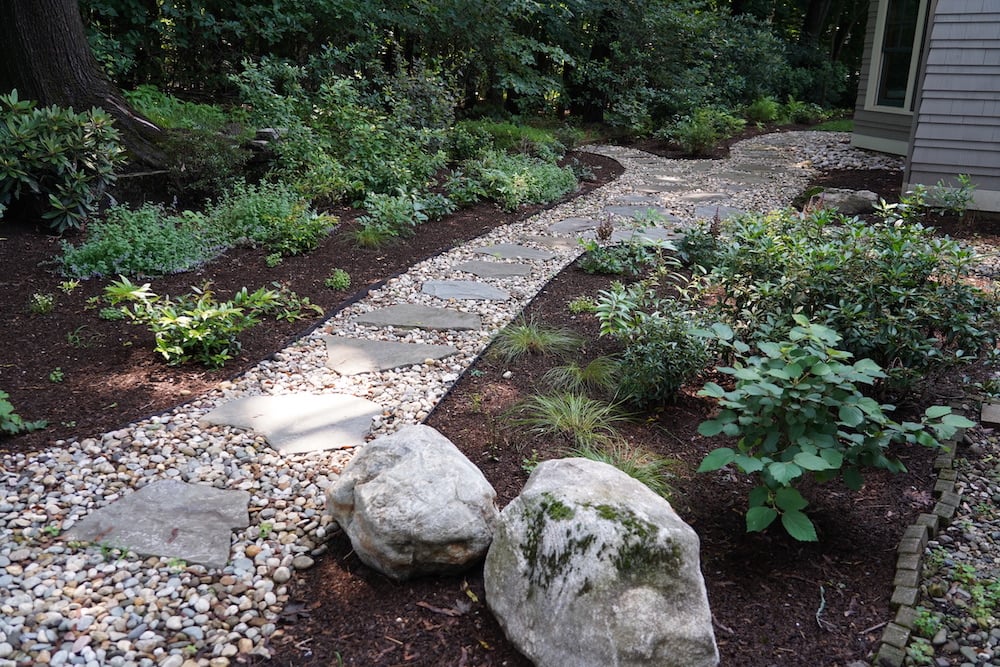
Choosing the right hardscape material for your Massachusetts home is more than just a design decision — it’s an investment in beauty, durability and year-round enjoyment.
Whether you love the classic charm of granite, the versatility of concrete pavers or the natural elegance of bluestone, there’s a perfect option to withstand New England’s wild weather while elevating your outdoor space.
With the right materials, proper installation and some wise planning, your hardscape will stand strong in cold temperatures and snowy conditions.
To learn more about designing and building the hardscape project you've always envisioned, download our free ebook, The Expert Guide to Building the Custom Home Hardscape of Your Dreams. If you're ready to get started on your new hardscape project, you can contact our team to schedule a free consultation. We'd love to talk to you!


